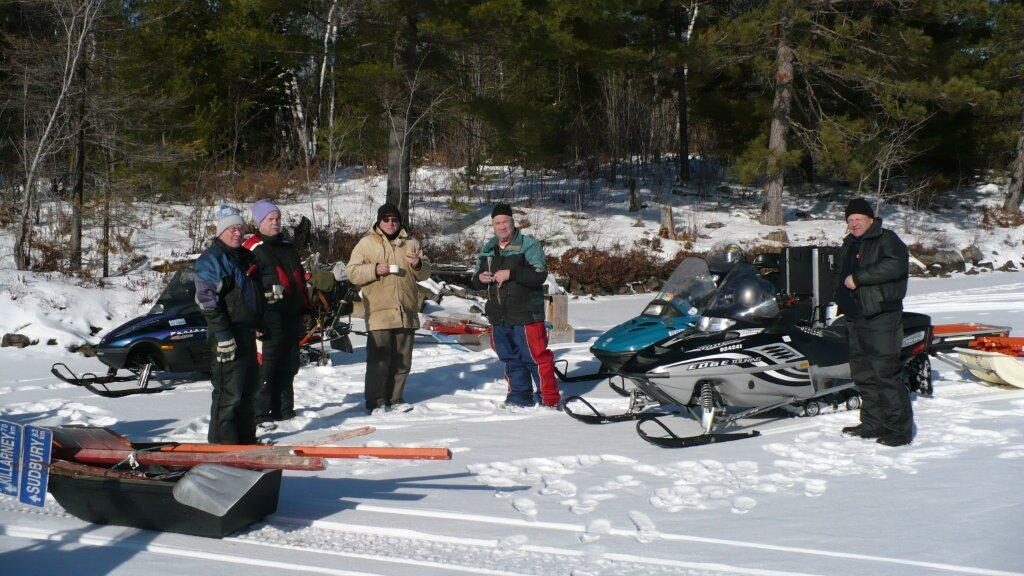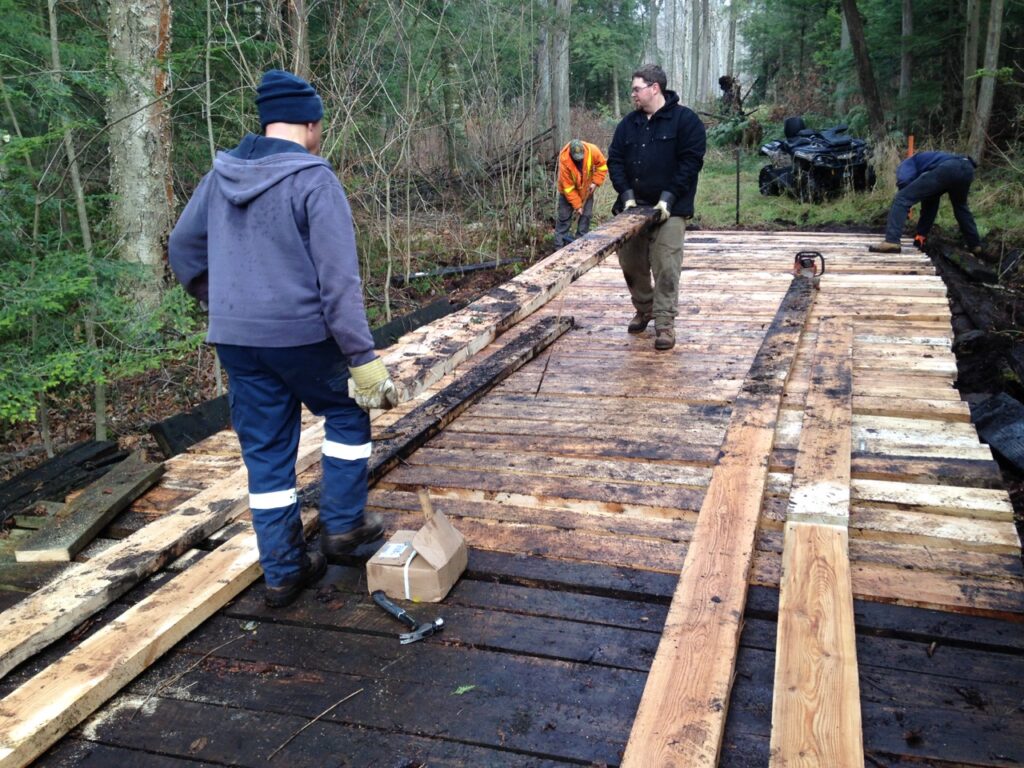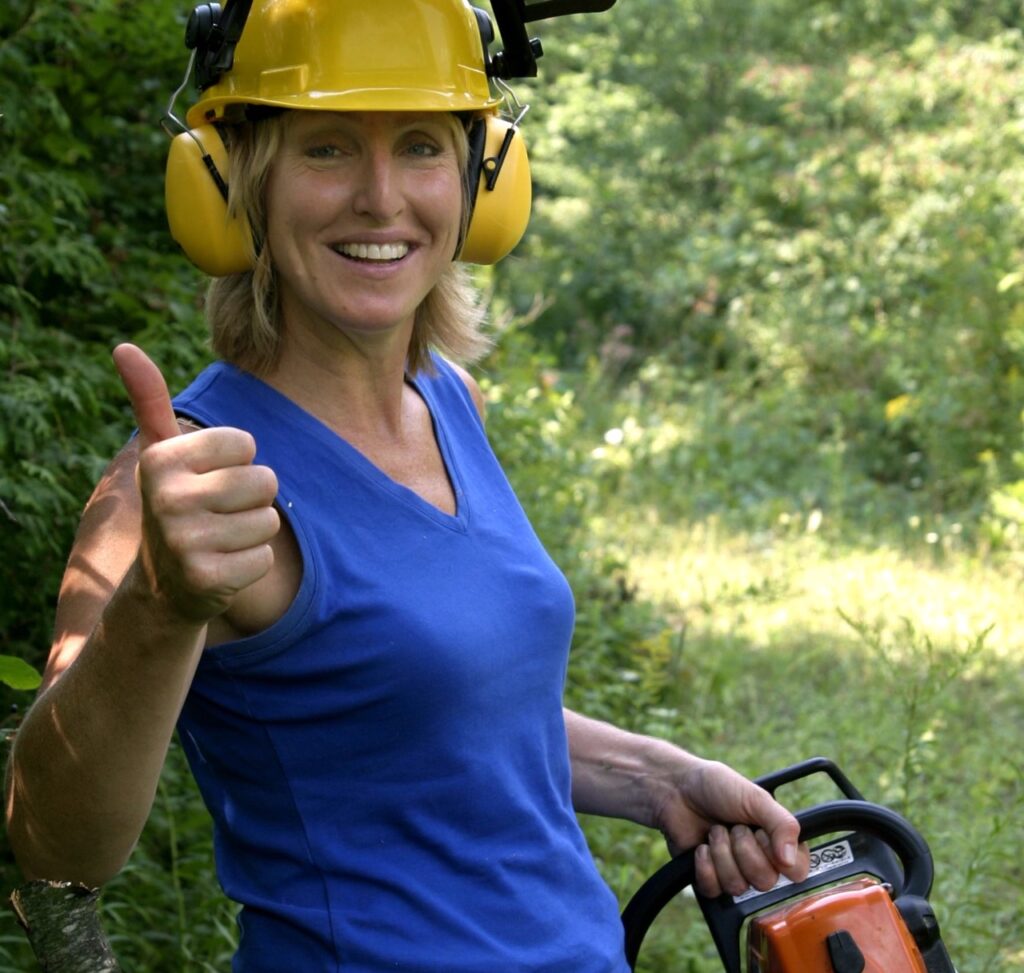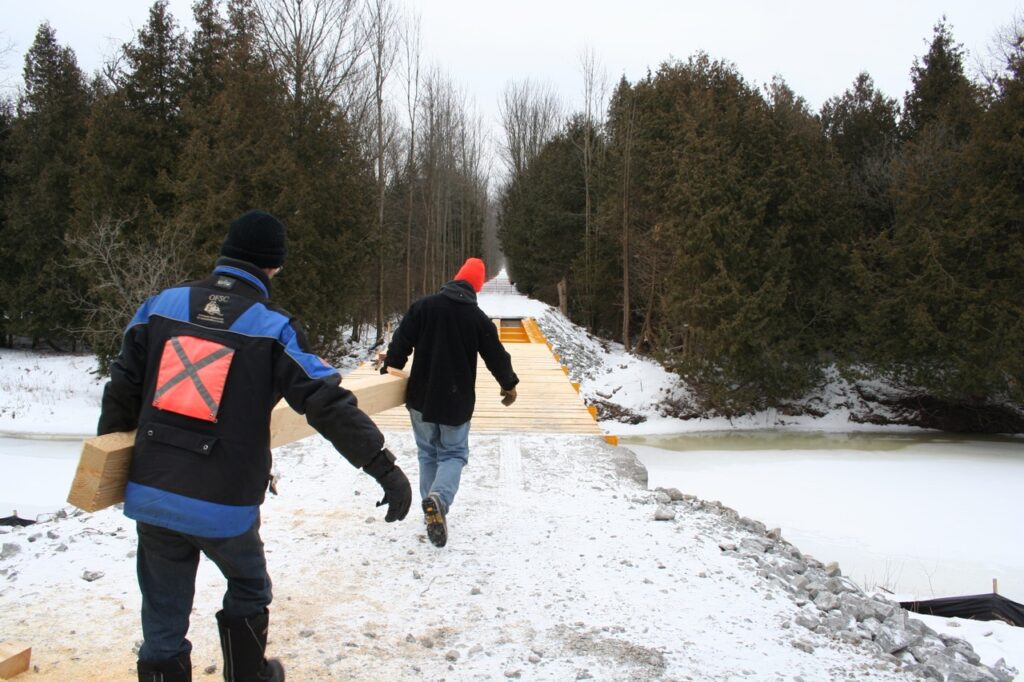Snowmobilers Helping Snowmobilers Preserve Trail Riding…
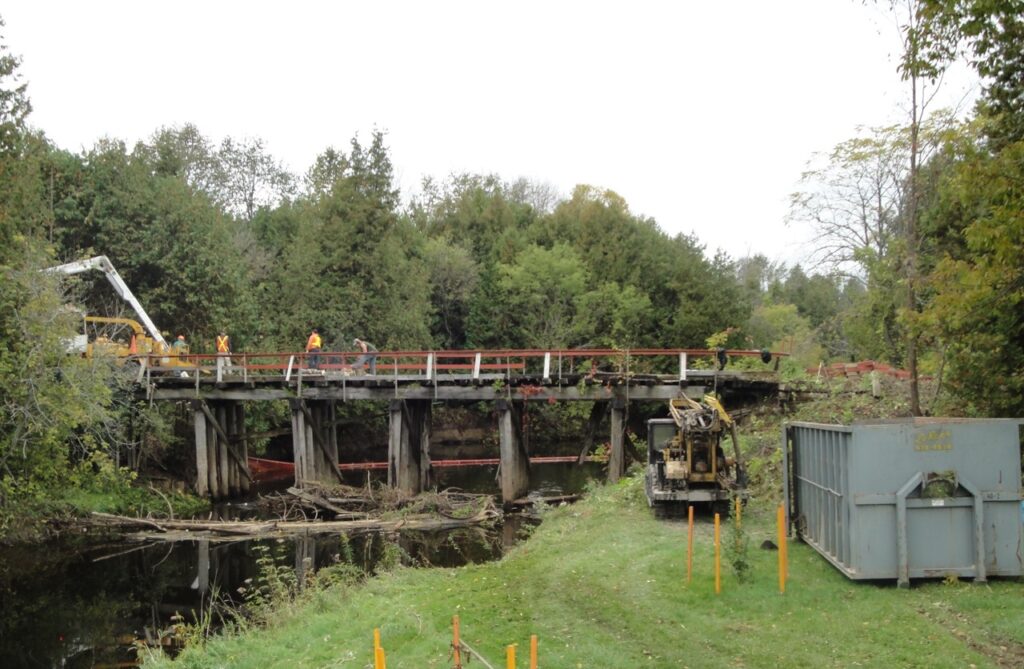
Snowmobile club volunteers doing bridge repairs in Muskoka. Photo courtesy of Muskoka Snowmobile Region.
Related: Stay on Trail
Is there really a crisis with snowmobile club volunteers? If the online posts I see almost daily are any indication, the answer is an unequivocal YES.
Many clubs are posting to ask for more volunteer help. Meanwhile, many snowmobilers are posting one complaint or another, oblivious to how de-motivating and upsetting their remarks are to the small number of volunteers who put their hearts and souls into operating the trails for all to enjoy.
I’m particularly fed up hearing that Quebec trails are so much better Ontario’s. That’s like saying say their volunteers are better than ours, when the plain truth is that it’s amazing that ours are able to deliver so much with so much less money to work with. But we keep expecting miracles from them…
Quebec volunteers benefit from an annual infusion of cash from their provincial government that doesn’t happen here. Plus, Quebec volunteers have the advantage of permit fees that provide them with $110 to $140 more on every permit sold (even after removing the costs of Quebec liability insurance from the equation). On sales of 100,000 permits, Quebec volunteers have somewhere between $11 million and $18 million more dollars to work with every year than our own volunteers do. So we show Ontario volunteers our respect and thanks by giving them much less to work with, while expecting a better result. Doesn’t sound fair to me.
Back To The Future
Why Trails Happened
Organized snowmobiling started when snowmobiling was in its infancy. Back in the days when about 400 different companies sold snow machines. When the only places to ride were in someone’s back forty. Or along old roads. On squirrely trapper’s paths. Or frozen waterways.
Too many of these routes were illegal and dangerous. Trespass, crashes and occasional decapitations by unseen barbed wire began to give snowmobiling a bad rap. So, quite spontaneously, early snowmobile enthusiasts joined forces informally. Their goal? To build local trails from scratch for legal, safe and reliable places to ride their sleds.
Why Clubs Started
Before long, disconnected pockets of local trails existed around many snowbelt communities. But these new corridors required maintenance. So informal groups became official clubs. And their members dragged old bed springs or other home made rigs behind their sleds to smooth the snow. It was a lot of work. But the desire to ride the best possible trails motivated riders to pitch in collectively to do whatever needed to be done.
Some of the original snowmobile club volunteers are still at it many years later! And all too often, they are the only ones helping their club.
What Changed With Snowmobile Club Volunteers
Flash ahead to today. Snowmobile club volunteers linking local pockets of trails with their neighbours created the seemingly never-ending, integrated trail networks we now enjoy. But today’s trail systems required substantially more work, attention and effort.
To say nothing of costing dramatically more to maintain. So what started as casual seasonal projects shared by local snowmobilers became a massive annual undertaking. It needs many more snowmobile club volunteers.
Meanwhile, a perfect storm of societal changes dictated that volunteerism is in general decline. As any not-for-profit group knows, finding enough volunteers is now tougher than ever. But snowmobiling could and should be the exception. Why? Because snowmobilers are the primary beneficiaries of our own volunteer efforts. And because being special is in our DNA…
How Snowmobiling Has Triumphed
Organized snowmobiling has worked miracles that are the envy of others. Snowmobilers helping snowmobilers resulted in the best – and one of the largest – networks of recreational trails in the world. Snowmobilers helping snowmobilers initiated an effective user pay system to which other leisure activities can only aspire. We’ve always paid our own way.
In the process, our volunteers provided unmatched recreational, tourism and business opportunities for snowbelt regions during winter months that are otherwise traditionally dormant economically. What’s more, snowmobilers are the most passionate of powersports enthusiasts.
Collectively, we created a recreational first that is much emulated in Ontario, but to date not duplicated. We are the only group of recreationists who can pursue our chosen activity on so many miles of maintained trails in so many different places and destinations.
It’s an achievement to be proud of. It’s an astoundingly unique success. And that makes it an accomplishment worthy of being sustained through our on-going volunteer commitment to snowmobile clubs.
Snowmobilers Helping Snowmobilers
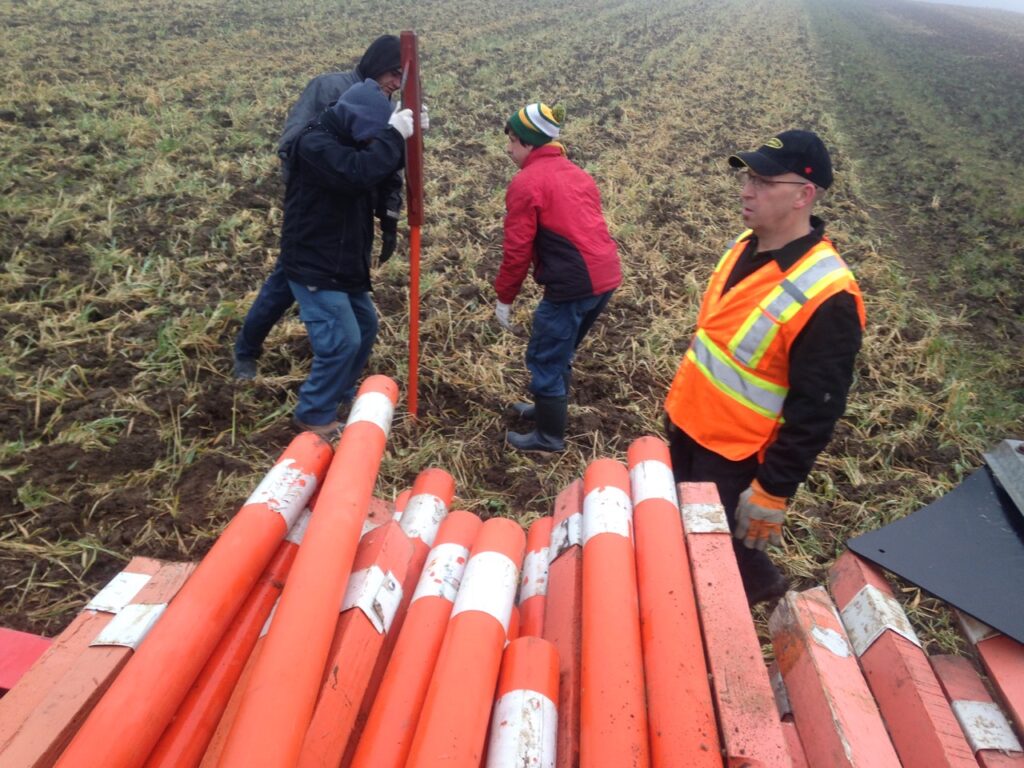
Snowmobile club volunteers installing & field stakes to mark the trail. Photo courtesy of OFSC District 5.
Yes, every snowmobiler who loves trail riding has a stake in its future. Without each and every one of us contributing in some way, at best we’ll revert to local pockets of disconnected trails to ride. At worst, we won’t have any snowmobile trail riding at all.
And that’s why we all need to get involved and pull together. It starts with paying our way by purchasing a trail permit that’s properly priced to cover the actual cost of operating a provincial system. It continues with cheering on our volunteers and not expecting miracles without providing sufficient funding. And it absolutely must continue with many more of us contributing to help out our beleaguered snowmobile club volunteers.
I know, I know. Volunteering is a passé term. Volunteering can be a scary prospect. Everyone is busy. No one wants to get sucked into an unending abyss with no end in sight. Or to get in over their head in something.
But getting involved doesn’t have to be a life sentence or an act of drudgery. It can easily be just a day or two a year to help with trail preparations. Or contributing a few hours of computer or social media work from home. What’s more, it can actually be fun and sociable. Plus, getting involved is a great way to connect with new riding companions or for families to share productive time together. Best of all, it’s the only way to ensure that we’ll continue to have trails to ride.
Time For New Ideas About Snowmobile Club Volunteers
One Millions Volunteer Hours
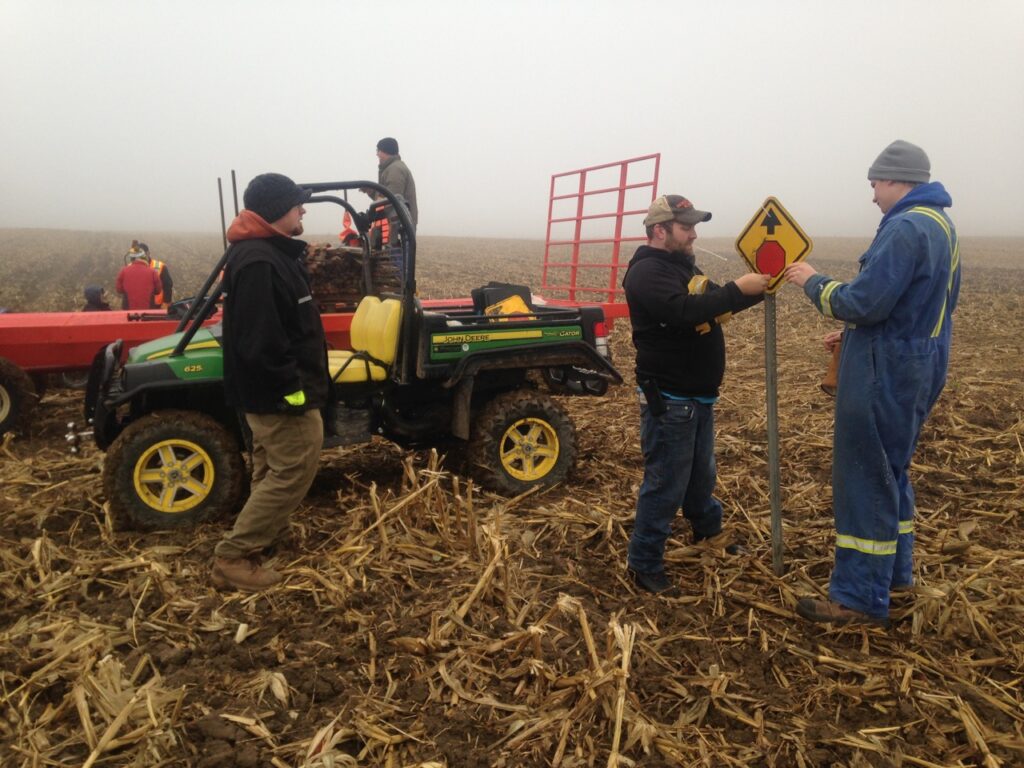
Fall is when most clubs need extra help to prep their trails before it snows. Photo courtesy of OFSC District 5.
So here are two suggestions for addressing the existing snowmobile club volunteers crisis. Maybe we should all start thinking in terms of our contribution to snowmobile trail riding as both buying a properly priced permit, AND helping a club for 10 hours a year. This approach would provide both the financial support and donated labour to get the job done very well.
In Ontario, this formula could generate up to 1 million hours of donated effort. I bet that would solve any snowmobile club volunteers deficiencies for many years to come. The only alternative may be to hire people to do all the club work volunteers used to do. And then increase permit prices even more to cover all of these new wages.
Get Organized Online
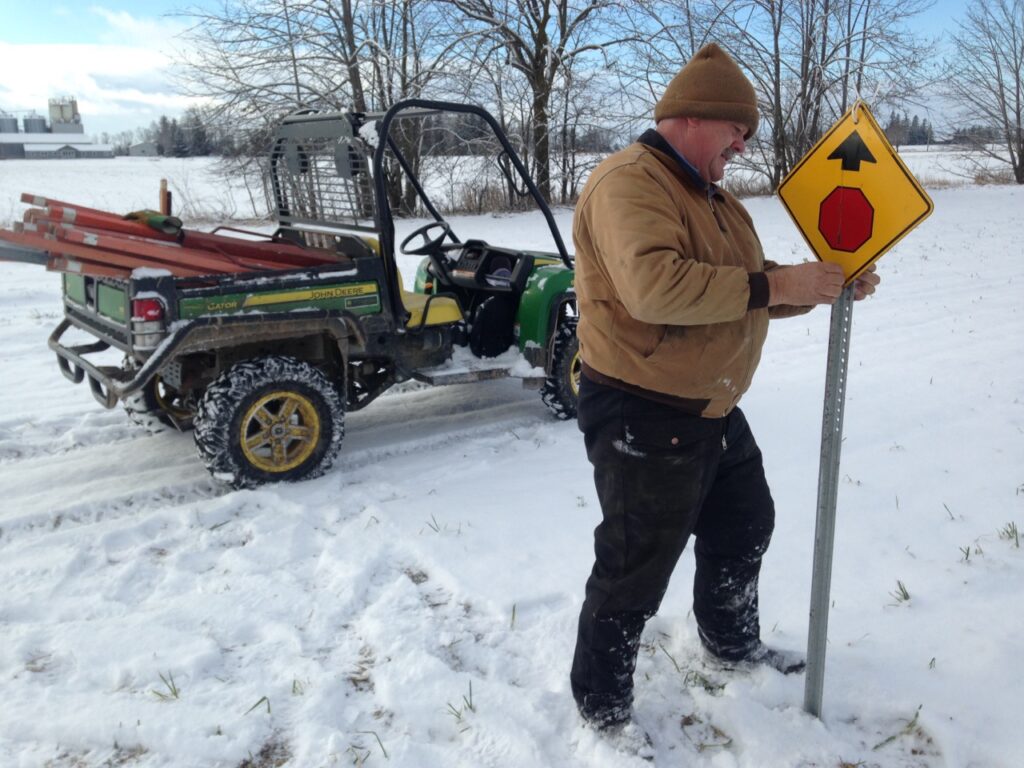
Avid sledder & landowner, Graham Snyder, also volunteers to help his local club. Photo by Phil Molto.
But we need to make it really easy for snowmobilers to connect with clubs. After all, a shrinking number of snowmobilers actually reside near the trails they ride. Many may not have an obvious local club. Or even know who their local club is. So how many of these “come-from-aways” are realistically going to be able to attend club meetings? Or be asked for help at the local coffee shop? Everything these days is going online and so should getting involved.
Recently, I did an unrelated review of snowmobile association websites across Canada. I don’t recall any of them delivering an easy way for trail riders to get involved online. If attracting more people to help is so important, then a snowmobiler should be able to sign up and connect with a club conveniently through every association’s home page. And every club should have a simple process for welcoming and assigning these new contributors for whatever effort and time they are comfortable donating. Of course, they might need more volunteers to keep that happening.
Clubs should also be very clear about what tasks need doing and how much time is needed. Make it a finite chore with set times (and location) so as not to scare away potential prospects with open-ended uncertainty. Also, suggest what to bring and wear and where to park. If there’s a volunteer shortage, now’s the time to make getting organized online a top priority.
Conclusion
It’s not rocket science, folks. It’s dead simple. If we want to keep on trail riding, we snowmobilers need to pay more for our permits and donate some time to our clubs. We must get our butts in gear and give snowmobile clubs and their volunteers the assistance they deserve. Right now, for next season. Otherwise, I fear that our great achievement on the snow will soon become only a fond memory.
The tips and advice in this blog are the opinions of the author, may not work in every situation and are intended only for the convenience and interest of the reader, who has the personal responsibility to confirm the validity, accuracy and relevancy of this information prior to putting it to their own use.

